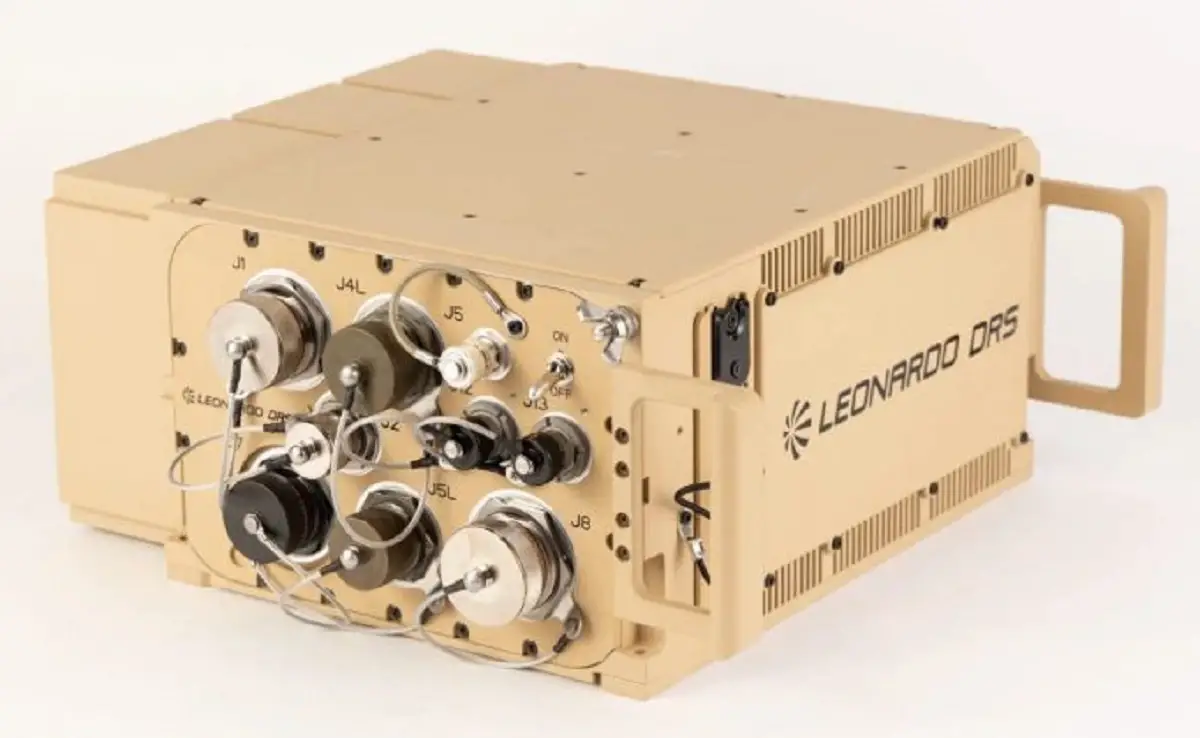Leonardo DRS, Inc. announced today its newest combat computing product as its latest addition to the company’s proven tactical computing portfolio of products used across U.S. and allied militaries. This new offering is fully compliant with the U.S. Army’s C4ISR/Electronic Warfare Modular Open Suite of Standards (CMOSS). This modular open systems architecture (MOSA) platform will enable flexibility and advanced capabilities intended to converge select Army warfighting capabilities – such as mission command, movement and maneuver and fires. The company’s new platform is well positioned to address the U.S. Army’s requirements under the CMOSS Mounted Form factor (CMFF) Program. This new DRS-designed CMFF system is an innovative, next-generation combat vehicle computing hub that is a ruggedized, lightweight, open architecture hardware system designed to deliver state-of-the-art capability to future Army combat computer networking needs. It enables users to insert plug-and-play networked 3U-VPX capability cards including assured positioning navigation and timing (APNT), mission command applications, and multi-band software defined radios.
“We are excited to unveil this advanced system in support of an important Army network modernization initiative,” said Bill Guyan, senior vice president and general manager of the Leonardo DRS Land Electronics business. “DRS has a proven 25-year track record of providing mission critical tactical computers, and CMFF is the latest demonstration of our full commitment to that partnership and support of the Army modernization goals. We are focused on continuing to deliver the quality products that allow soldiers to execute their missions on the modern battlefield.”
DRS’s current mission critical computing platforms are used throughout the U.S. Army and U.S. Marine Corps ground combat and tactical wheeled vehicle fleets, enabling the execution of mission command, logistics tracking and fire control on today’s multi-domain battlefield. This next generation, open architecture capability will enable the U.S. Army to field future technology capabilities continuously, while avoiding the delays and costs due to proprietary IP and “vendor lock.” Additionally, this advanced CMFF platform will provide soldiers with improved situational awareness and networking on the battlefield. The new DRS CMFF computing system is a natural product evolution that fully aligns the Army’s Network modernization vision. It represents the company’s commitment to open architecture standards and employs our deep engineering understanding of combat vehicle environmental requirements. This combination ensures the delivery of a low-risk solution for the U.S. Army. Additionally, it is designed as a dependable mission critical CMOSS capability that warfighters can use in the conduct of large-scale combat operations without hesitation.
DRS proudly supports Modular Open Systems Approach and is a leading participant of the CMOSS efforts and architectures; it is also a principal member of the SOSA consortium. This critical involvement ensures DRS products are interoperable for warfighters across all military branches. Network computing is a key strategic focus for the company as it continues to be the leading provider of advanced C5 technologies, delivering increased data and communications needed for situational awareness in multi-domain battlefield operations. The company is investing in the future of C5 for the DoD through the development of the next generation of MFOCS Systems, AI processing solutions and advanced CMOSS/SOSA aligned mounted systems – all aimed at enabling future network and platform processing to improve sensor fusion, situational awareness and reduce the cognitive burden for commanders and crews.
Headquartered in Arlington, VA, Leonardo DRS, Inc. is an innovative and agile provider of advanced defense technology to U.S. national security customers and allies around the world. We specialize in the design, development and manufacture of advanced sensing, network computing, force protection, and electric power and propulsion, and other leading mission-critical technologies. Our innovative people are leading the way in developing disruptive technologies for autonomous, dynamic, interconnected, and multi-domain capabilities to defend against new and emerging threats.















